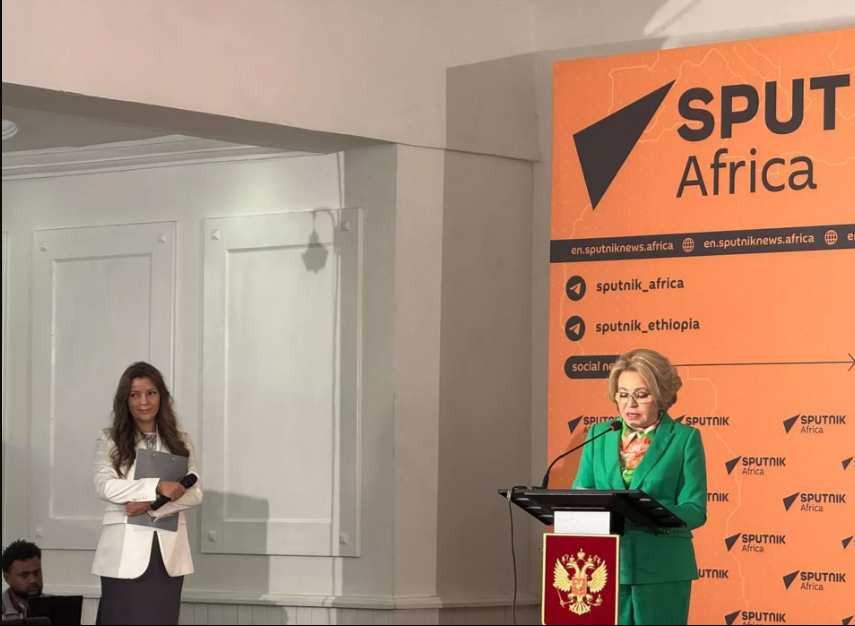
Russia has intensified its engagement with Africa following the launch of its editorial center in Ethiopia.
- Russia launched its first large-scale, multi-functional editorial center in Ethiopia
- Russia aims to expand its influence in Africa through diplomatic, economic, and military strategies
- The media center plans to create content in Amharic, English, and establish a network of correspondents in Africa
The media center which is based in Ethiopia will be Russia’s first large-scale, multi-functional editorial center on the continent.
Over the years, Russia has leveraged diplomatic, economic, and military strategies to expand its influence across the continent.
This renewed focus is driven by geopolitical ambitions, economic interests, and a desire to counter Western dominance in African affairs.
DON’T MISS THIS: Russia says Africa has become top of mind for its government
Amid global outrage over its invasion of Ukraine, Russia ramped up efforts in 2023 to reshape the narrative.
Seeking to influence public opinion, the Kremlin expanded its efforts beyond military alliances to include information warfare operations on a global scale.
Russia’s editorial center births in Ethiopia
Sputnik, Russia’s state-owned news agency, has made a significant move by launching its first African editorial center in Ethiopia.

This marks a major milestone in Russia’s efforts to expand its media presence in Africa.
The news hub, located in Addis Ababa, is the first large-scale, multi-functional editorial center established by a Russian media company on the continent.
The opening ceremony was attended by high-profile guests, including Valentina Matvienko, Speaker of the Russian Federation Council, and Agegnehu Teshager, Speaker of the House of Federation of Ethiopia. Dmitry Kiselev, Director General of Rossiya Segodnya, the media group that owns Sputnik, was also present.
Sputnik also plans to establish a network of correspondents, including at the African Union headquarters.
“We are taking a giant step towards the emergence of a broad Russian-Ethiopian and Russian-African interaction.”
“First of all, of course, information interaction, which we have been sorely lacking, and which is now crucial for the formation of a truly fair multipolar world order, in which the interests of African countries will be fully taken into account,” Valentina Matvienko said as quoted by Sputnik Africa.
Plans are underway to create content for radio, websites, social networks, and applications in Amharic and English, as well as correspondent work, including with the African Union. Several Amharic-language projects have already been launched.
Dmitry Kiselev, Director-General of Rossiya Segodnya, the media group that owns Sputnik, highlighted Africa’s importance as a vital voice in the world.
DON’T MISS THIS: Russia adds Nigeria, Tunisia, and Ethiopia in currency trading list
“The interviews we conduct here will be translated and shared in all 32 languages we operate in globally, giving Ethiopia a platform to reach a wider audience.” he noted.
Sputnik Africa already has a strong presence on the continent, with hosts and correspondents from various African countries providing listeners with balanced, first-hand information.
Recently, Sputnik Africa expanded its reach by adding Botswana to its list of broadcasting stations. It now airs daily on FM frequencies in Mali, Niger, Nigeria, Cameroon, and Guinea.
The platform features exclusive interviews with high-ranking African politicians, influencers, and public figures, along with analyses of events across Africa and beyond.












